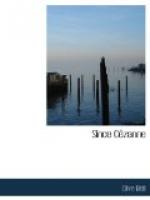For, ninety-nine out of a hundred of our aesthetic experiences have been carefully prepared. Art rarely catches us: we go half way to meet it, we hunt it down even with a pack of critics. In our chastest moments we enter a concert-hall or gallery with the deliberate intention of being moved; in our most abandoned we pick up Browning or Alfred de Musset and allow our egotism to bask in their oblique flattery. Now, when we come to art with a mood of which we expect it to make something brilliant or touching there can be no question of being possessed by absolute beauty. The emotion that we obtain is thrilling enough, and exquisite may be; but it is self-conscious and reminiscent: it is conditioned. It is conditioned by our mood: what is more—critics please take note—this precedent mood not only colours and conditions our experience, but draws us inevitably towards those works of art in which it scents sympathy and approval. To a reflective moralist Wordsworth will always mean more than a yellow primrose meant to Peter Bell. In our moments of bitter disillusionment it is such a comfort to jest with Pope and His Lordship that we lose all patience with the advanced politician who prefers Blake. And, behold, we are in a world of personal predilections, a thousand miles from absolute values.
Discussion of this question is complicated by the fact that a belief in the absolute nature of beauty is generally considered meritorious. It can be hitched onto, and even made to support, a disbelief in the theory that the universe is a whimsical and unpremeditated adventure which rolls merrily down the road to ruin without knowing in the least where it is going or caring to go anywhere in particular. This theory is unpopular. Wherefore, absolute beauty is too often fitted into a whole system of absolutes or rather into The Absolute; and, of course, it would be intolerable to suppose that we could ever fail to recognize—should I say Him?




